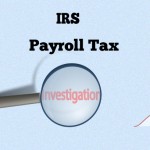Craig Thomas
Latest posts by Craig Thomas (see all)
- Chris Feels Victorious - September 8, 2016
- Are You At Risk of a Levy? - May 26, 2016
- 3 Ways To Survive Your Spouse’s Tax Troubles - February 15, 2016
 This week, one of my favorite and most exciting annual tradition tips off: March Madness.
This week, one of my favorite and most exciting annual tradition tips off: March Madness.
Over the next 20 days, my TV will amplify the sounds of crowd noise, sneakers squeaking, and whistles blowing. Names, such as Blue Devils, Jayhawks, Wildcats, and Badgers will dominate discussions, and sports bars fashion will take on a colorful, collegiate inspired, twist.
The infectious ritual of tracking completed tournament brackets is repeated throughout almost every major organization in the US.
Those who are lucky enough to be victorious in their office pools, gain a temporary rush of accomplishment, accompanied by enriched pockets with winnings.
What do these individuals do with their winnings? Well, everyone has their own agenda, but more than likely they don’t report it to the IRS.
The last thing that comes to mind when filling out a March Madness grid is the possibility that you will have to pay taxes on your winnings.
Note to all: All gambling winnings are taxable income.
It’s easy to forget to ante up with the IRS on the associated taxes of your winnings, considering the fact that you’ll likely never receive a W-2G form from the office pool manager.
How Large?
The American Gaming Association reports the following: “Americans will bet more than $2 billion through more than 70 million brackets for March Madness this year. The total number of brackets to be filled out will be greater than the number of ballots cast for either President Obama (66 million) or Mitt Romney (61 million) in the 2012 election.”
That equates to a lot of unreported income. Sorry Uncle Sam.
Risks:
While it’s mostly high stakes gamblers who catch the eye of the Internal Revenue Service, even “social” gamblers can run into trouble.
There have even been some cases of legal crackdowns, though examples are few and far between.
For example:
Back in 1992, Claire Newell, a technical support specialist for Rhode Island’s elementary and secondary education department was convicted of running a March Madness pool that cost $5 to enter, and ended up serving a year of unsupervised probation.
While common sense might make regular taxpayers think that $20-$100 bets won’t get noticed, they’re probably right; unless that person is already a high risk for an audit.
If you win big and decide to make a large cash bank deposit, let’s say more than $10,000, this will likely raise a red flag during an audit.
If the source of your earnings is revealed, the IRS may likely report you to federal and state investigators for potential charges for illegal gambling.
Final Thoughts:
If by chance some of your NCAA brackets don’t pan out, or you make some bad bets on your next trip to the race track or Las Vegas, they can offset any other gambling winnings. They cannot, however, be used to reduce other income. Losing wagers can only be claimed on Schedule A to the extent that they are less than or equal to your winnings.
Good luck!






